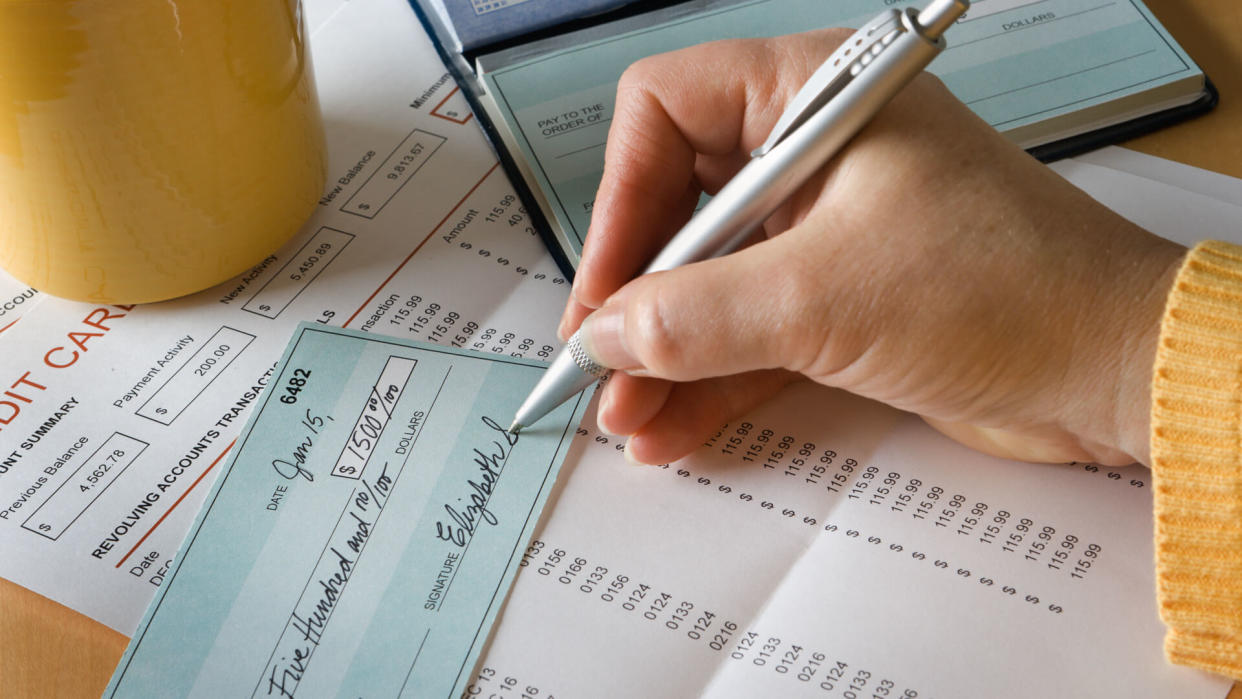Bounced Checks: What Are They and How To Prevent Them

It can happen to anyone. You forgot about that automatic payment for your car loan coming out of your checking account this week and wrote a check for some other expense. When the check was finally presented to your bank for payment, there wasn’t enough money in your account to cover it, and it was returned. You just bounced a check.
Read: How to Guard Your Wealth From a Potential Banking Crisis With Gold
What Does Bounced Check Mean?
When your check bounces, it means that the bank didn’t accept your check because you didn’t have enough money in your account. The bank will return the bounced check to the payee — the person the check was made out to.
The term pre-dates digital banking, but it applies to electronic payments as well. An electronic payment can be treated like a bounced check if you don’t have sufficient funds to cover the transaction amount.
How Does a Bounced Check Differ From an Overdraft?
Sometimes the term bounced check is used interchangeably with the term overdraft. However, an overdraft is a bit different than a bounced check. With a bounced check, the check is returned to the payee and the transaction does not occur. With an overdraft, the bank pays the check or ACH payment despite your insufficient funds.
If you deposit a check and it bounces, the issuing bank will return it to your bank, and your bank will return it to you. You can try to redeposit the check but should first follow up with the person or company who issued you the check to ensure the funds are available. If the check is drawn from a local bank, you can take it to that bank and try to cash it rather than risk depositing another bad check.
Bounced Check Consequences
What happens after a check bounces? Bouncing a check can have numerous negative consequences. If your check bounces, your bank may charge a non-sufficient funds fee, although many banks no longer charge NSF fees on returned items. For banks with bounced check penalties, the average NSF fee is $30 per returned item. If you write additional checks before noticing the issue, you could accrue additional fees with each check you bounce.
Can a bounced check be cashed or deposited again? Yes, once your bank returns the bounced check to the payee, the person to whom you wrote the check can still attempt to get their money using that same check. The check could bounce again if you have not straightened out your account.
Even if your bank does not charge an NSF fee, it may report bounced transactions to ChexSystems. ChexSystems is a consumer reporting agency. It is similar to a credit reporting agency, except it tracks your banking history rather than your credit history. A poor ChexSystems report can make it difficult to open a new account at some financial institutions.
A bounced check can negatively impact more than your bank account. If that bounced check was for a bill, the payee may charge you a returned check fee or a late fee if the return makes the payment past due. If bounced checks cause you to get behind on payments, especially loan and credit card payments, it could hurt your credit score.
How To Prevent Bounced Checks
Overdraft protection is a service offered by most banks. It can help you avoid bounced checks, overdrafts and some of the associated overdraft fees. Overdraft rules and protection options vary by financial institution but may include the following:
Linked account: You can have your bank transfer the overdraft amount from a linked savings or money market account or a credit card.
Grace period: Some banks enable you to set up alerts regarding overdrafts. This would give you up to 24 hours to deposit enough funds to cover the transaction.
Paid overdrafts: Your bank may automatically pay checks or transactions that overdraw your account up to a specified amount.
Final Take
If you bounce a check or experience an overdraft, your first step to fixing it would be to deposit enough money into your account to cover all outstanding payments. This will help you avoid further bounced checks, overdrafts and additional fees.
If you haven’t signed up for overdraft protection through your bank, you should check to find out which options are available. If options are limited or fees are high, consider switching to a bank that can make protecting your account easier and more affordable.
Most importantly, keep a close eye on your checking account balance so you can avoid writing a bad check. Make sure you don’t write a check or schedule a payment using money that has not yet been posted to your account.
Emily Cahill contributed to the reporting for this article.
This article originally appeared on GOBankingRates.com: Bounced Checks: What Are They and How To Prevent Them
